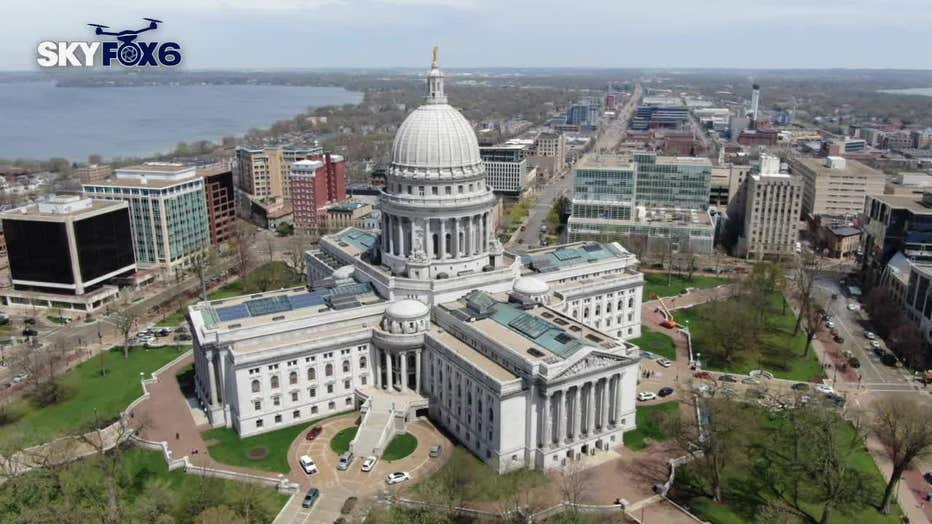Wisconsin shared revenue, Republican leaders at odds over bill
MILWAUKEE - Wisconsin Senate and Assembly Republicans are at odds over a key ingredient of a proposal long sought after by local governments, first responders and others that would significantly boost state aid to pay for essential services.
After months of closed-door negotiations, Republican Assembly Speaker Robin Vos said Wednesday the shared revenue bill is ready.
"We are done negotiating. We are not going to take changes," Vos said Wednesday.
SIGN UP TODAY: Get daily headlines, breaking news emails from FOX6 News
However, some feel the bill passed by the Assembly and now headed to the Senate is half-baked.
"There are a lot of provisions that affect local governments that I am not a fan of," said Milwaukee Mayor Cavalier Johnson.

Wisconsin Capitol, Madison
The bill in its current form will increase shared revenue for all local governments by 15%. However, Milwaukee city and county will have the ability to increase their own revenue through a referendum – meaning voters will be the ones to approve or deny a higher sales tax.
It comes at a time when the city has a growing pension obligation and not enough tax dollars to cover it.
"The legislative process takes a really long time," said Mordecai Lee, political expert and University of Wisconsin-Milwaukee professor emeritus.
FREE DOWNLOAD: Get breaking news alerts in the FOX6 News app for iOS or Android.
Democrats don't agree a referendum is the best option forward for Milwaukee. Neither do some members of Vos' own political party. According to the Associated Press, Republican Senate Majority Leader Devin LeMahieu said the Senate will likely remove the provision and make other unspecified changes.
"I think the hint we’ve been getting from the majority leader is they’re not really sure they want to impose the referendum requirement," Lee said.
Lee said Vos will likely be brought back to the negotiating table.

Robin Vos; Devin LeMahieu
"Half a loaf is better than none, why would no loaf be better than half a loaf? Let’s do compromise. I think that’s what we’re going to see unravel," he said.
While breaking bread in politics isn't always common, a spokesperson for Democratic Gov. Tony Evers said he appreciates LeMahieu's willingness to work together.
"I think a lot is going to be happening behind closed doors, but sooner or later we’re going to know," Lee said.
A spokesperson for the governor said Milwaukee has an urgent financial need. The Senate and Assembly must approve the same bill; only then can it go to the governor's desk.
Shared revenue bill details
Wisconsin’s local governments have clamored for years for more state aid to help cover basic services, including police and fire protection, after decades of frozen funding and cuts.
Under the bill, $1.5 billion in aid to municipalities – known as shared revenue – would be paid for by tapping 20% of the state’s 5-cent sales tax, an idea Evers has supported. Aid would then grow along with sales tax revenue.
The bill would increase funding to counties, cities, towns and villages by $261 million – at least a 15% increase for everyone – over the next two years, but that could only be spent on police and fire protection, emergency medical services, emergency response communications, public works and transportation. The city and county of Milwaukee would see a 10% increase, but could ask voters for more.
Under the bill, Milwaukee could levy a 2% sales tax and Milwaukee County could add 0.375% sales tax to its current 0.5% sales tax.
The shared revenue program to fund local governments, created in 1911, has remained nearly unchanged for almost 30 years, despite overall growth in tax revenues. Shared revenue for counties and municipalities was cut in 2004, 2010 and 2012 and since then has been relatively flat.
The Associated Press contributed to this report.

